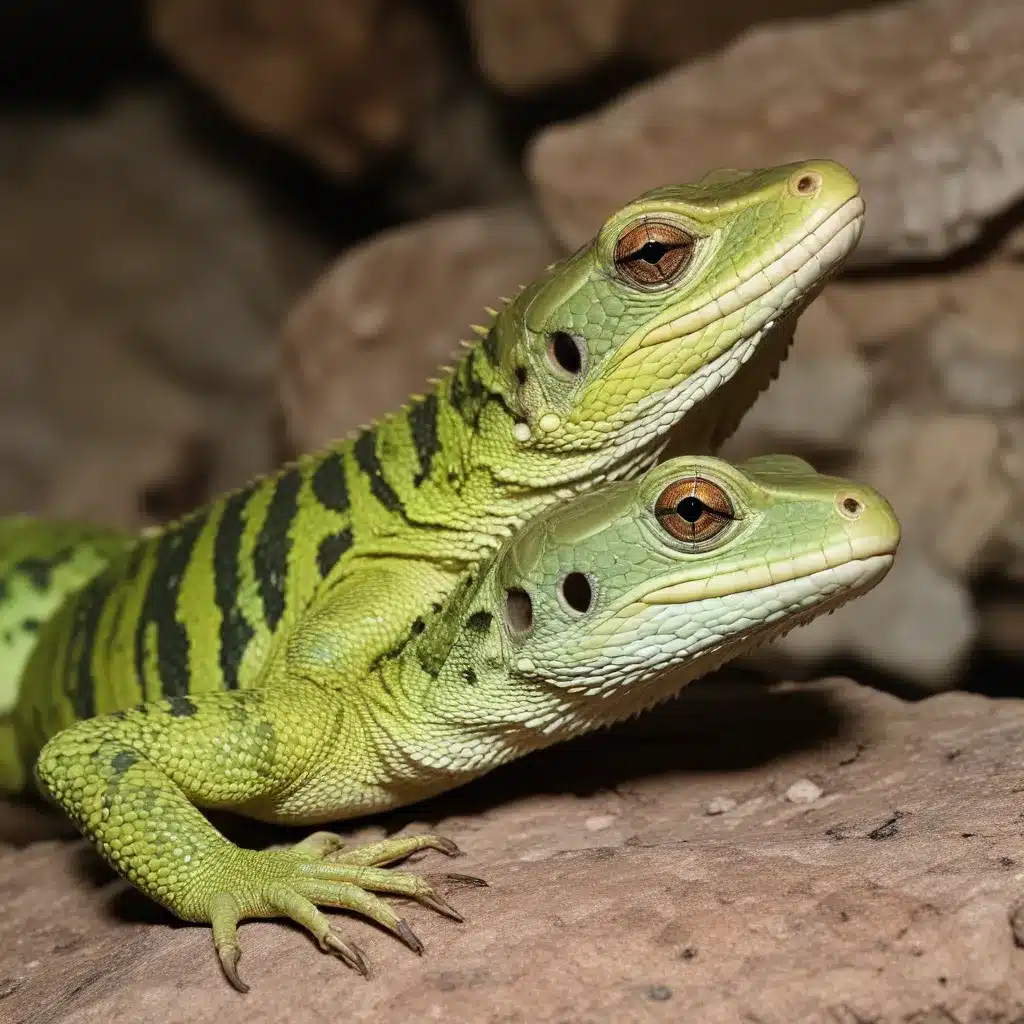
Understanding Reptile Health Needs
Maintaining the health and well-being of exotic reptiles requires a comprehensive understanding of their unique physiological needs and environmental requirements. Reptiles are poikilothermic, meaning their body temperature is regulated by external sources, primarily the temperature of their surrounding environment. This fundamental difference from mammals and birds necessitates a more meticulous approach to reptile care and disease prevention.
Proper temperature, humidity, and lighting conditions are crucial for reptile health. Inadequate or imbalanced environmental factors can lead to a host of problems, including metabolic disorders, respiratory infections, and skin conditions. Reptile owners must closely monitor and adjust these parameters to ensure their pets thrive. Regular veterinary check-ups, preventive treatments, and diligent record-keeping are also essential components of a proactive reptile health protocol.
Optimizing Reptile Environments
Temperature Control: Reptiles are ectothermic, meaning they rely on external sources to regulate their body temperature. Providing the appropriate temperature gradient within the enclosure is crucial for maintaining normal physiological functions, such as digestion, immune system function, and overall well-being. Depending on the species, the optimal temperature range can vary significantly, and owners must be vigilant in monitoring and adjusting the environment accordingly.
Humidity Management: Adequate humidity levels are equally important for reptile health. Improper humidity can lead to respiratory issues, skin problems, and other complications. Reptile owners must carefully monitor and control the humidity levels within the enclosure to ensure they align with the species-specific requirements.
Lighting and UV Exposure: Proper lighting, including the provision of appropriate UVB and UVA wavelengths, is essential for reptile health. UVB radiation is necessary for the synthesis of vitamin D3, which is crucial for calcium metabolism and bone development. Insufficient or improper lighting can result in metabolic bone disease and other serious health problems.
Substrate and Enclosure Design: The choice of substrate and the overall design of the reptile’s enclosure can also significantly impact its well-being. Substrates should be non-toxic, easy to clean, and provide a suitable surface for the reptile to move and burrow. The enclosure’s size, layout, and furnishings should mimic the species’ natural habitat to create a comfortable and stimulating environment.
Comprehensive guidelines on reptile housing, feeding, and environmental requirements are available to ensure optimal care.
Proactive Veterinary Care
Routine veterinary check-ups and preventive treatments are essential for maintaining reptile health. Regular examinations by a veterinarian experienced in exotic animal care can help identify potential issues early, allowing for prompt intervention and treatment. These check-ups typically include a thorough physical examination, diagnostic testing (e.g., fecal analysis, blood work), and the administration of appropriate preventive medications or vaccinations, if available for the species.
Additionally, reptile owners should be vigilant in monitoring their pets for any signs of illness or distress, such as changes in appetite, lethargy, respiratory issues, or skin abnormalities. Prompt veterinary attention is crucial, as many reptile health problems can quickly escalate if left unaddressed.
Emerging zoonotic diseases associated with reptiles also underscore the importance of proper hygiene and biosecurity measures to protect both the animal and the owner’s health.
Responsible Reptile Breeding
Responsible reptile breeding practices are essential for maintaining the health and genetic diversity of captive populations. Breeders should prioritize the well-being of the animals, adhere to ethical guidelines, and ensure compliance with all applicable laws and regulations.
Genetic Considerations: Breeders should carefully select breeding pairs based on genetic compatibility, avoiding close inbreeding to prevent the emergence of deleterious traits or health issues. Maintaining detailed records of the lineage and bloodlines is crucial for responsible breeding programs.
Breeding Techniques: Appropriate breeding techniques, such as proper timing of introductions, providing suitable environmental cues, and monitoring the animals’ condition, can help ensure successful mating and egg production. Breeders should also be prepared to provide appropriate incubation conditions and care for the hatchlings.
Health Screening: Prospective breeding animals should undergo comprehensive health screenings, including physical examinations, diagnostic testing, and quarantine protocols, to ensure they are free from infectious diseases or genetic abnormalities that could be passed on to offspring.
Ethical Considerations: Responsible breeders should prioritize the well-being of their animals, avoid overproduction, and work to maintain high standards of care throughout the breeding process. Ethical breeding practices can help reduce the number of unwanted or abandoned exotic reptiles.
Legal requirements and guidelines for reptile breeding and sales vary by jurisdiction, and breeders must ensure they are in full compliance.
Responsible Reptile Sales
The sale of exotic reptiles is subject to a complex web of legal requirements and ethical considerations. Responsible reptile retailers and private sellers must be well-versed in the applicable laws, regulations, and best practices to ensure the health and welfare of the animals and the safety of the buyers.
Legal Compliance: Sellers must be aware of and adhere to all local, state, and federal laws and regulations governing the possession, sale, and transport of exotic reptiles. This may include requirements for permits, licenses, and the documentation of species, origins, and health status.
Animal Welfare Considerations: Reptile sellers should prioritize the well-being of the animals in their care. This includes providing appropriate housing, nutrition, and veterinary care, as well as ensuring the animals are not subjected to undue stress or mistreatment during the sales process.
Consumer Education: Responsible sellers should provide comprehensive information to prospective buyers about the specific care requirements, potential risks, and long-term commitments associated with owning the reptile species. This helps ensure that buyers are fully informed and able to provide the necessary care and environment for the animal.
Ethical Sales Practices: Reptile sellers should avoid unethical practices, such as overbreeding, impulse sales, or the sale of sick or unsuitable animals. Reputable sellers may also offer a health guarantee or return policy to protect the buyers and ensure the animals’ well-being.
By adhering to best practices and legal requirements, responsible reptile sellers can help promote the responsible ownership and care of exotic reptiles, while safeguarding the animals’ welfare and the safety of their human caretakers.
For more information on exotic reptile care, breeding, and responsible sales, please visit ExoticReptilesForsale.com.


